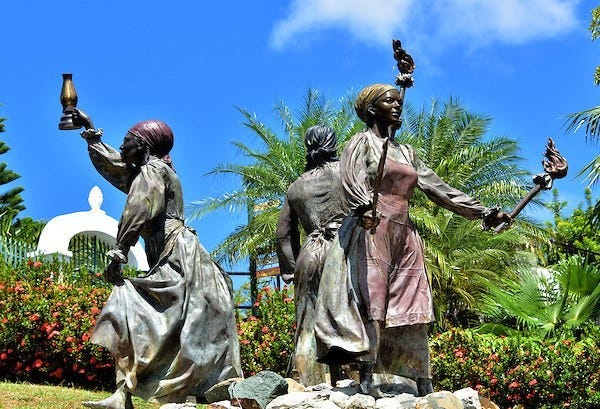Carlotta Lucumi “La Negra Carlota”
Carlota Lucumi, a kidnapped African lady, was a slave insurrection leader at the Triunvirato farm in Mantanzas, Cuba. Carlota was a free…
Carlota Lucumi, a kidnapped African lady, was a slave insurrection leader at the Triunvirato farm in Mantanzas, Cuba. Carlota was a free African-born woman from the West African Kingdom of Benin. Her surname, Lucumi, is derived from her ethnic group, the Lucumi people, who are Afro-Brazilians descended from the Yoruba of modern-day Nigeria and the Benin Republic.
Lucumi was abducted when she was ten years old and transported from her African origins to Cuba’s Matanzas region. Throughout the 1830s and 1840s, the development of plantation agriculture in Cuba resulted in multiple slave revolts. Lucumi was a slave who lived and worked on the Triumvirato sugar estate. Slavery had perished in nearby Haiti in 1803 and was being abolished across Latin America and the British Empire, but it persisted in Cuba, where Lucumi languished under severe conditions and violent treatment at the hands of Spanish plantation owners.
In 1843, Lucumi and another enslaved lady, Firmina, plotted a slave uprising. Their plan aimed for a simultaneous insurrection on Triumvirato and the adjoining farms. A plantation owner discovered Fermina when she was disseminating this information to other estates and severely assaulted her before imprisoning her. Despite this setback, Lucumi continued to plan the insurrection. She coordinated the insurrection by sending coded instructions to neighboring slaves through a talking drum.
On November 3, 1843, Lucumi, together with tribal chiefs Filip, Narcisco, Manuel Ganga, and Eduardo, conducted a raid that sparked the Triumvirato Rebellion. She used a machete to release Firmina and a dozen other slaves who were being held captive in a house on the property. She then burnt down the house where slaves were tortured, murdered the overseer’s daughter, Maria de Regla, and caused Julian Luis Alfonso, the owner of the Triumvirato farm, to leave.
Then Lucumi and her followers proceeded to the Acane plantation and slaughtered as many whites as they could locate. They damaged five sugar plantations as well as a number of coffee and livestock properties during their two-day uprising. Lucumi and Firmina were both arrested and executed on the day the last plantation was destroyed. Lucumi’s body was bound and dragged till she died.
Her supporters discovered her dead on November 6, 1843, and resolved to continue fighting for their independence.
Finally, in November, highly armed Spanish colonial soldiers defeated the slaves brandishing machetes, putting an end to the insurrection.
The following year, 1844, became known as the “Year of the Lashes” in Cuba as slaveholders brutalized virtually all enslaved people on the island to punish both those who participated in the uprising and intimidate those who did not.
Lucumi’s tale of bravery during the revolt, however, spread throughout Cuba. Her actions inspired numerous subsequent rebellions against white slave owners on that island and throughout the Caribbean. There is now a monument to the legacy of Carlota Lucumi at the Triumvirato sugar mill.


